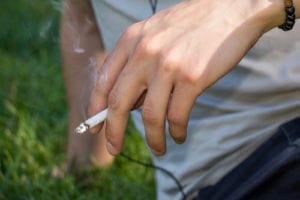We’ve all heard of the gateway drug theory – as a kid, you were likely told that smoking cigarettes or drinking alcohol could lead to more drugs such as heroin or cocaine. Programs such as D.A.R.E. – Drug Abuse Resistance Education – taught us at an early age to always say “No!” to someone who is offering us drugs or other substances. This program and theory might have helped some of us refrain from using, at least at a youthful age, but is the theory true? The New York Times has broken down the theory and provided several useful pieces of data.
Several studies have shown the effect of one drug to another in lab rat experiments. For example, a Columbia University study found that rats exposed to alcohol were far more likely than other rats to press a lever that dispensed cocaine. A 2011 study found similar findings in a study that explored nicotine use in mice. While these types of studies have shown some sort of causal relationships, many scientists are still wondering the effectiveness of these studies due to the simple fact that the studies’ assumptions were that humans respond similarly to rats when it comes to narcotics.
Other studies have proven that users who took a drug, like marijuana for example, were able to reduce their use of other drugs. For example, a 2008 study found that individuals who smoked marijuana could reduce their dose of pain-relieving opioids. Newer research is also concluding that other factors, such as poverty and poor social environment have greater predictability in one’s use of drugs than using soft drugs during childhood. A 2016 study conducted by researchers in Texas titled “Gateway hypothesis” and early drug use: Additional findings from tracking a population-based sample of adolescents to adulthood”, further emphasized that childhood drug use wasn’t consistent through adulthood and that other factors such as social context and role of community social norms should also be considered.
Does this mean there is no such thing as gateway drugs? Not exactly. Research has proven there is some connection, but each person is different, and some people may be more impacted by childhood drug use than others. Personality, addictive-behavior tendencies, temperament, social context, environment, biological factors, and so much more play a role in addiction.
If you have an addiction and are seeking a world-renowned treatment center, call us today at 888-958-7511. Avalon Malibu is a California state-licensed mental health and substance abuse recovery treatment center. We believe in holistic recovery, meaning that we will work with you to restore your mind, body, and spirit. Make the decision to seek help today. Call us for a consultation.












